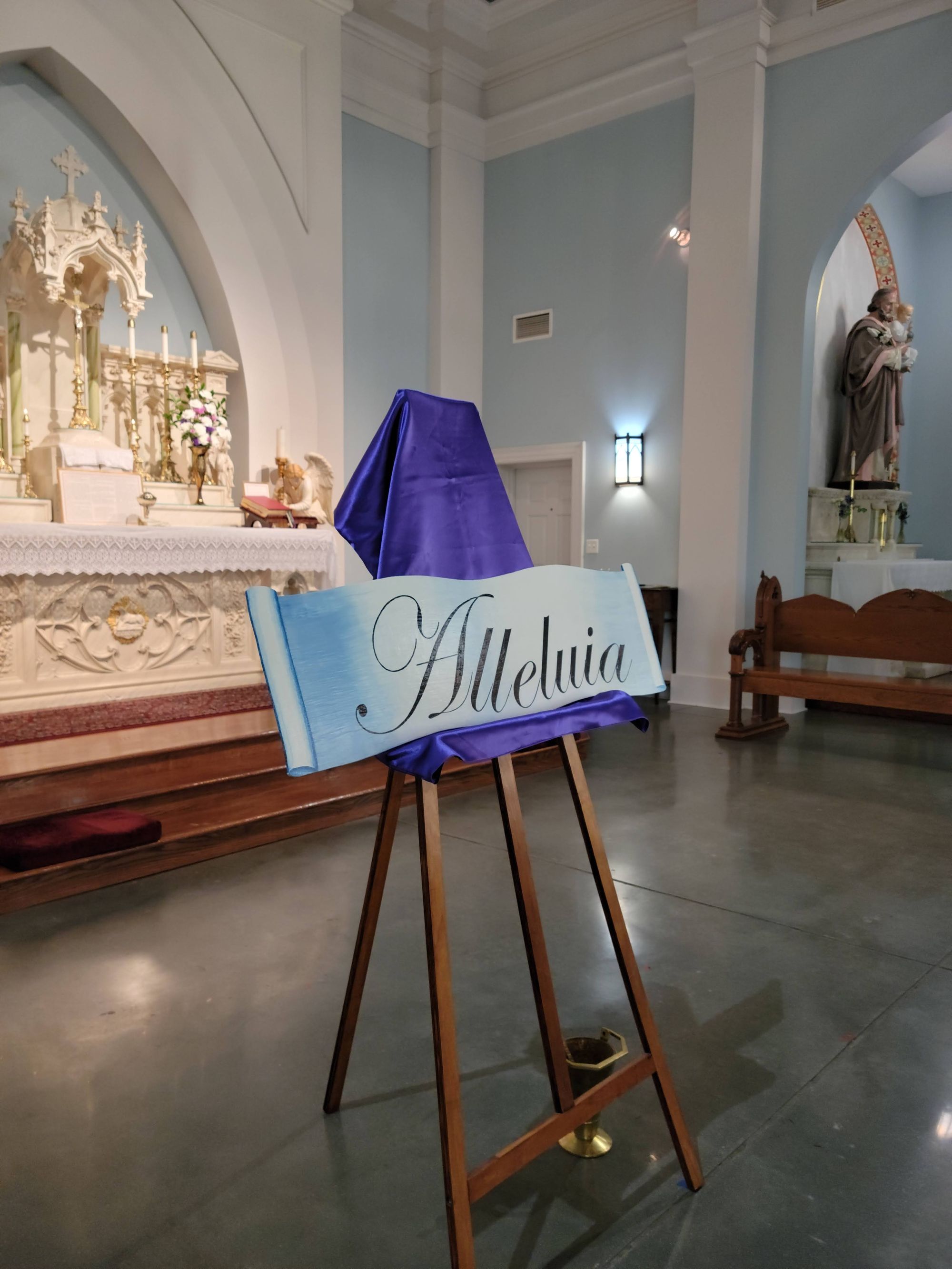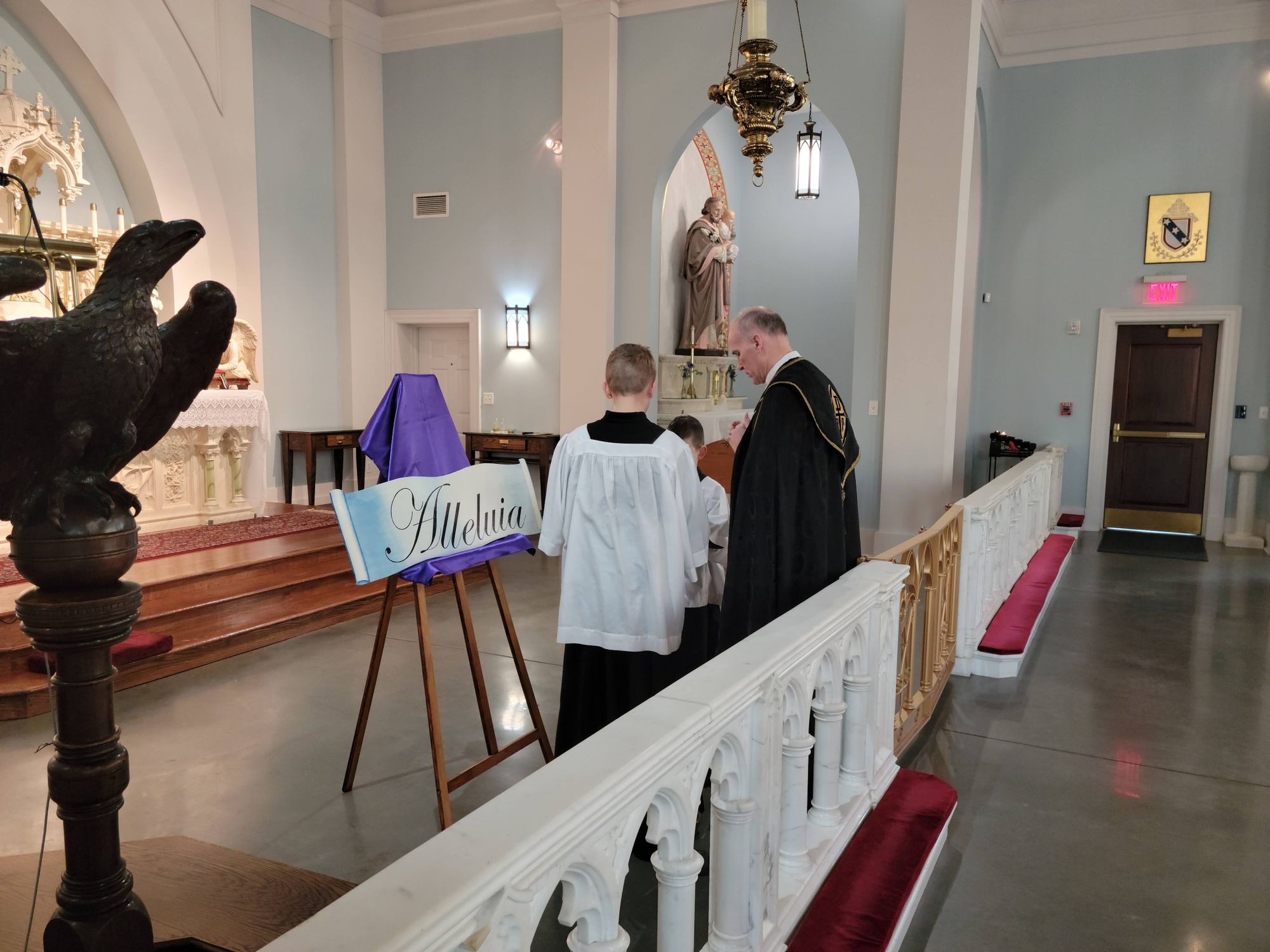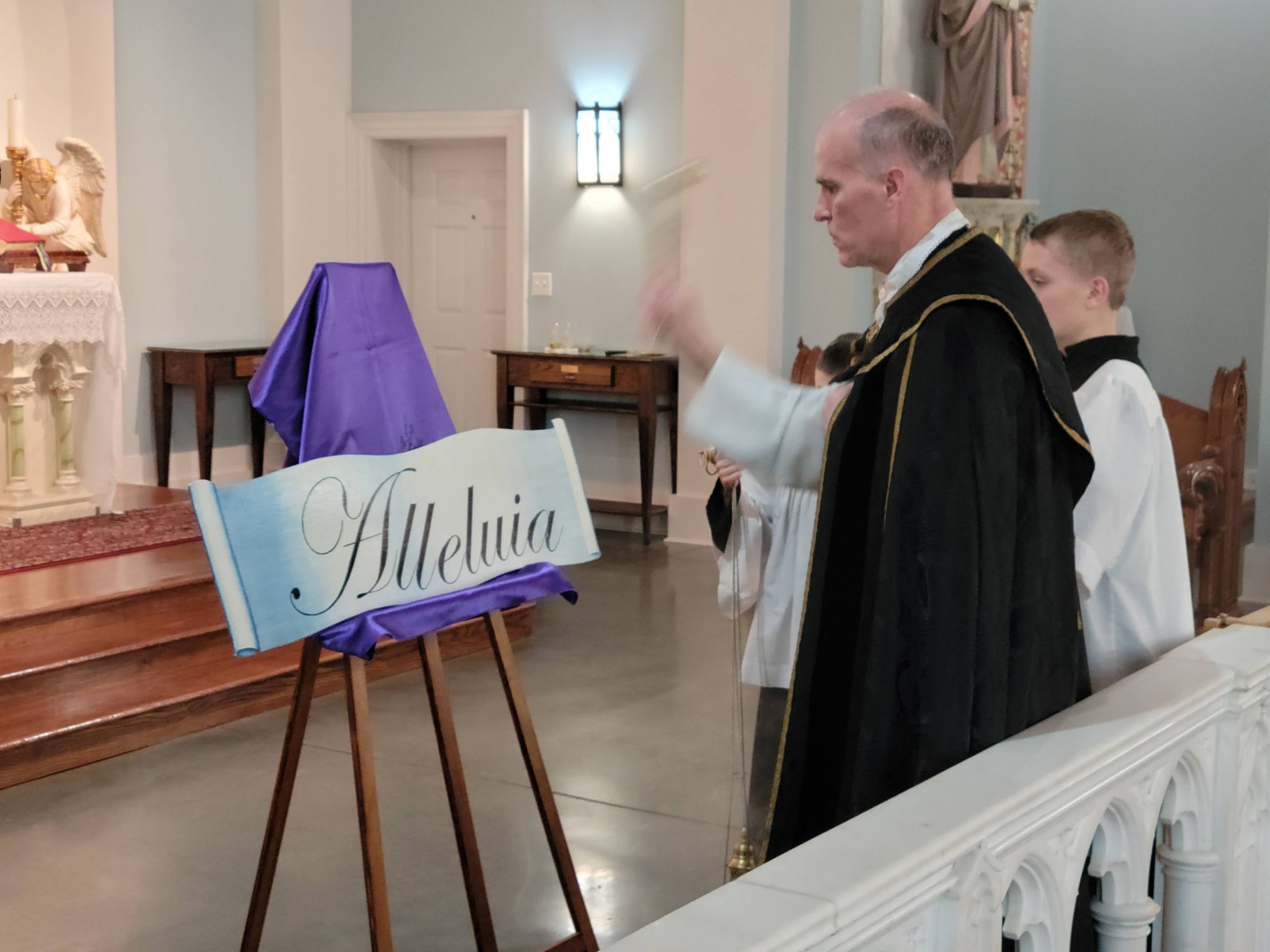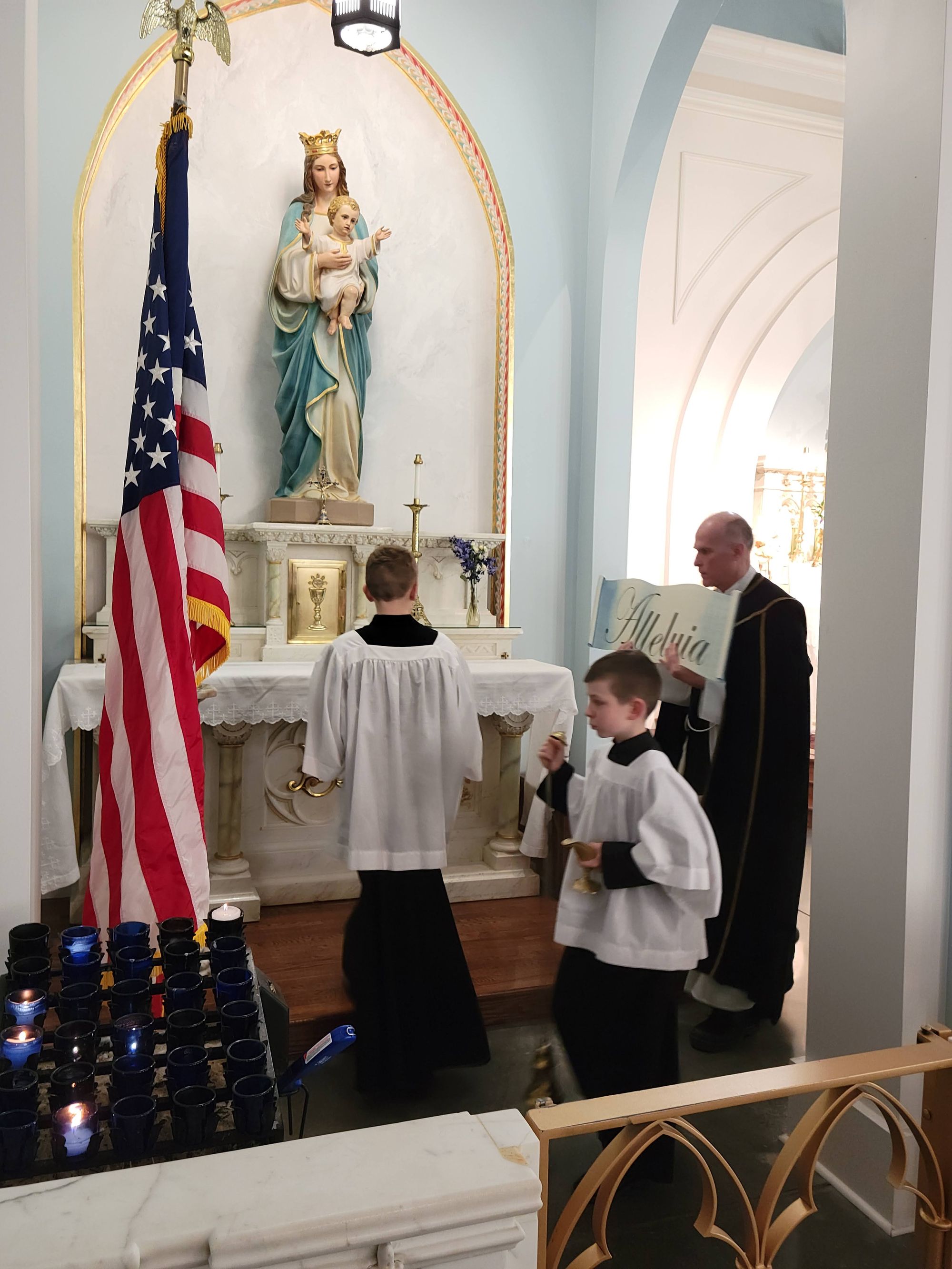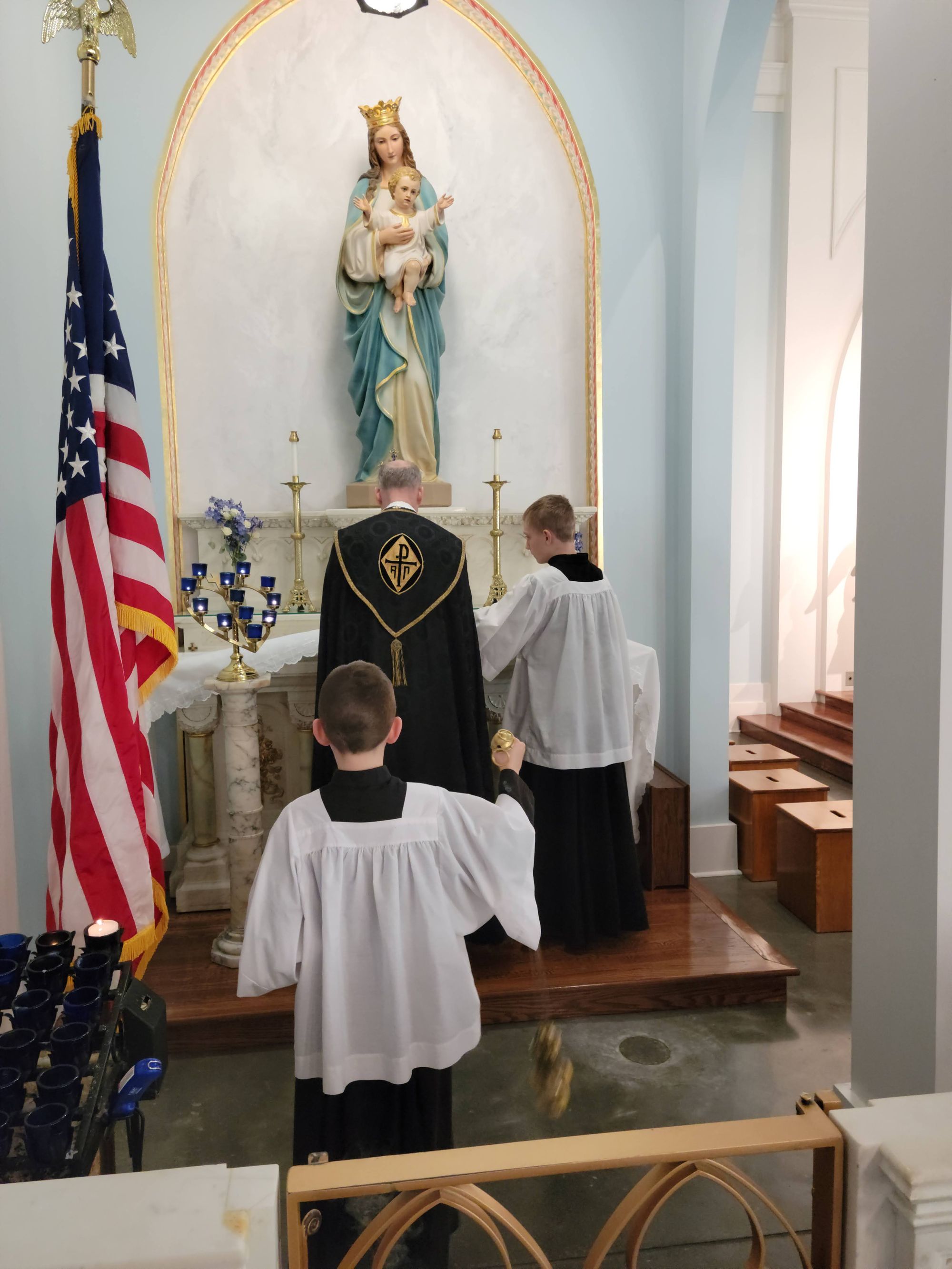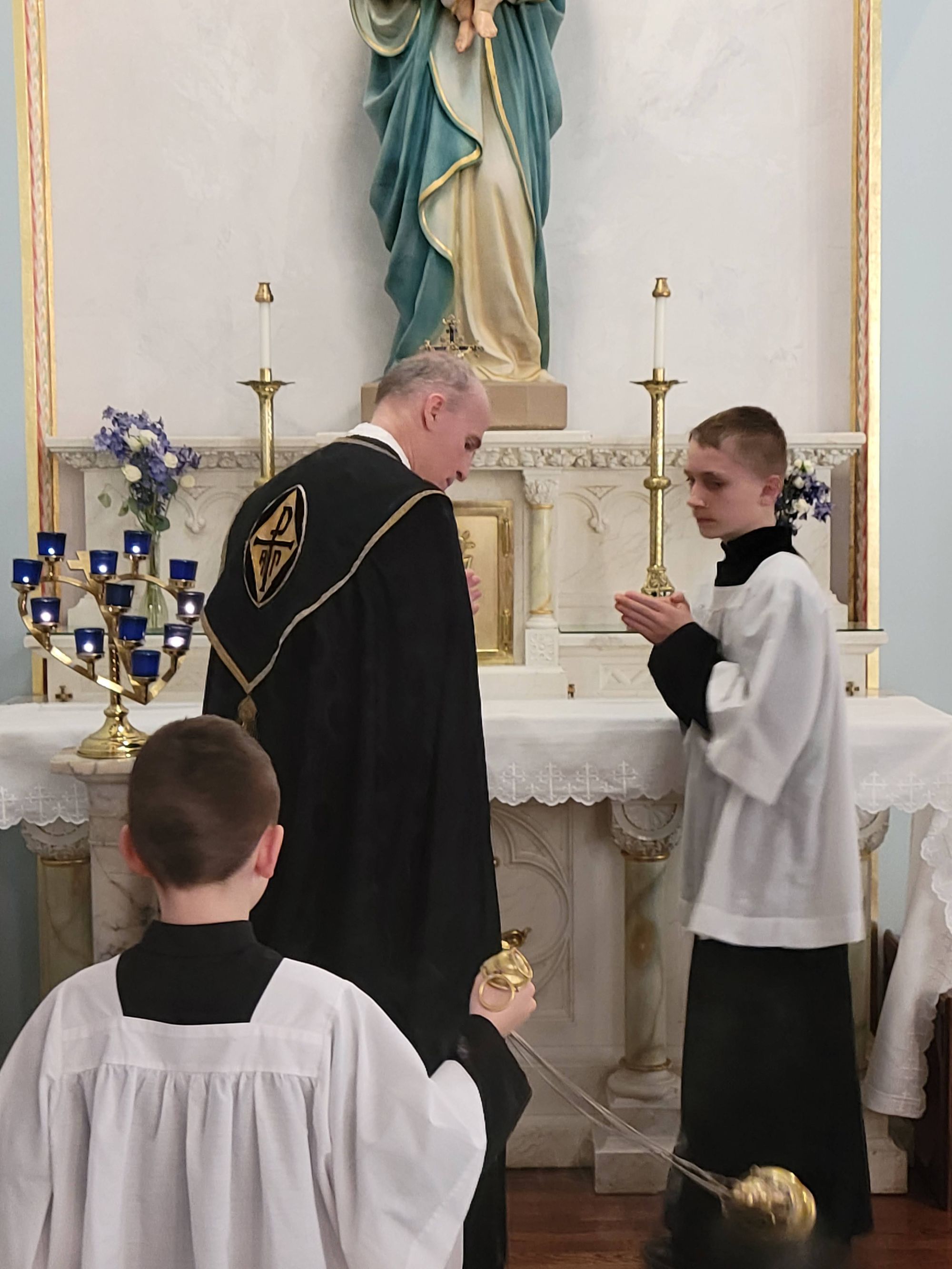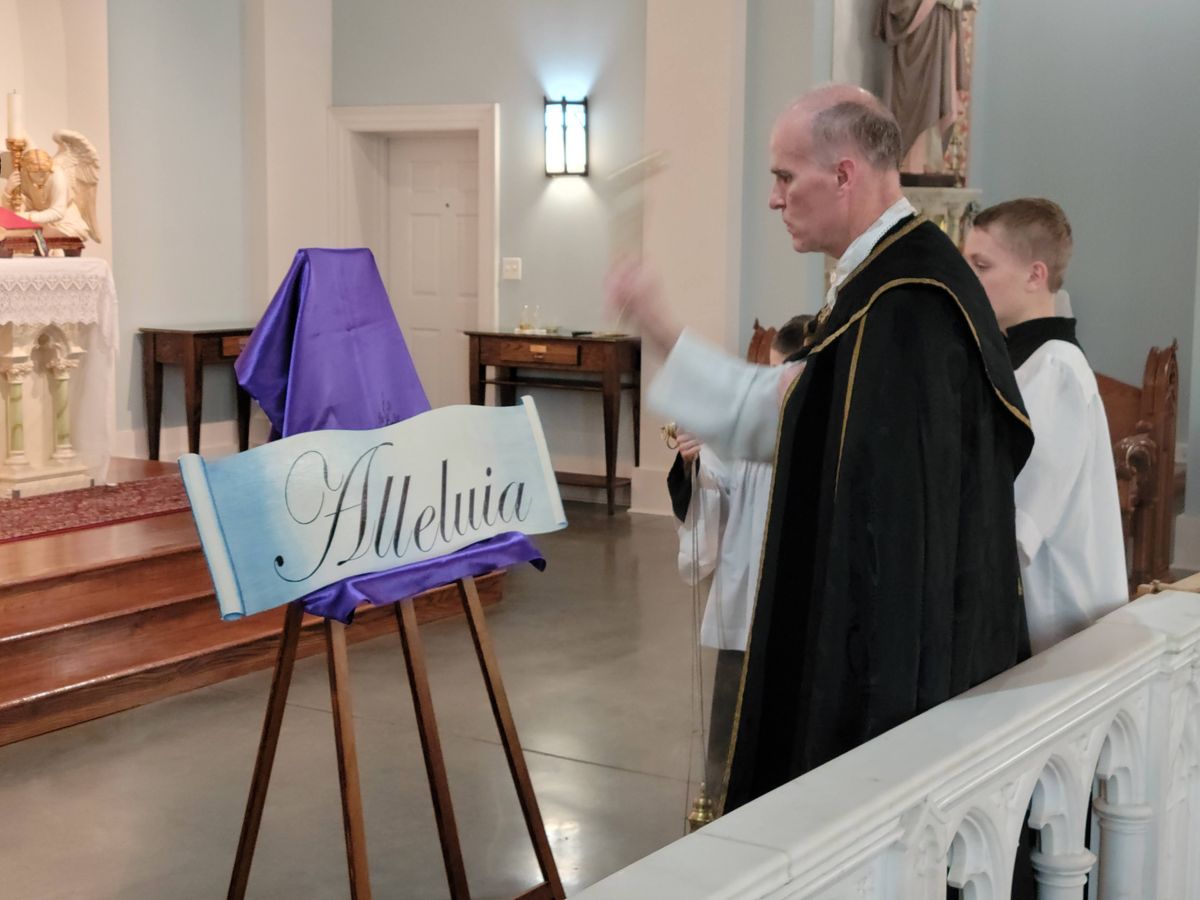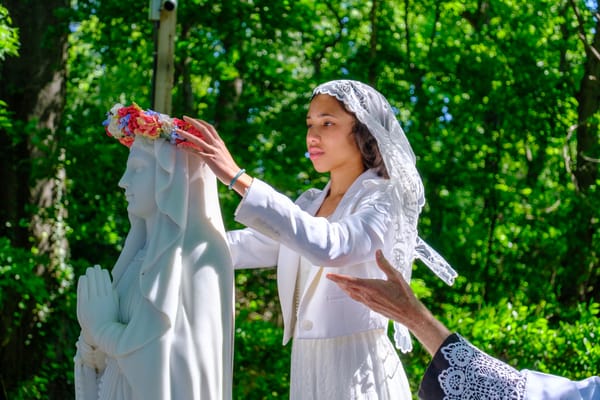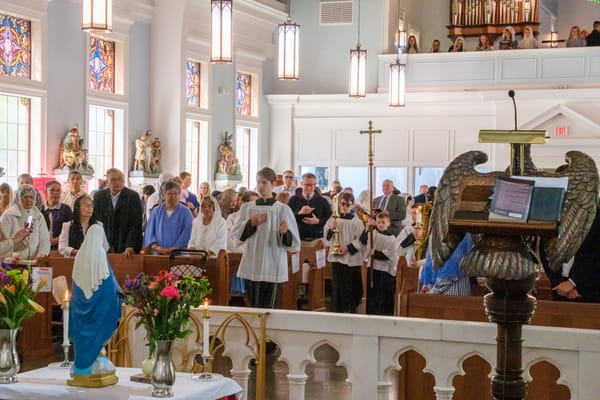On the eve of Septuagesima, the Roman Rite begins its preparation for Lent by laying the “Alleluia” aside until the vigil of Easter. In the Breviary of St Pius V, which derives from the later medieval customs of the Papal court, this is done with characteristic simplicity; “alleluia” is added twice to the “Benedicamus Domino” and “Deo gratias” at the end of Vespers, and then dropped. Many medieval Uses did this more elaborately, adding “alleluia” to all the antiphons, or replacing with one or more of the Paschal antiphons that consist of solely the word “alleluia.” It was a common custom to make a parchment or plaque with the word “Alleluia” written on it, and at the end of Vespers, carry it in procession out of the church and bury it in the churchyard or cemetery, to be dug up and brought back on the evening of Holy Saturday or Easter morning. Of course, since this custom is not a formal part of the liturgy, it could be done in various ways.
~ Gregory Dipippo (newliturgicalmovement.org)
- Right-click (or long press on mobile) and select "save image as" to download any images you like.
- All images without faces are free to use (with attribution) under the Creative Commons license!
- Please do not use images with people's faces online or on social media. They are for private use only!
